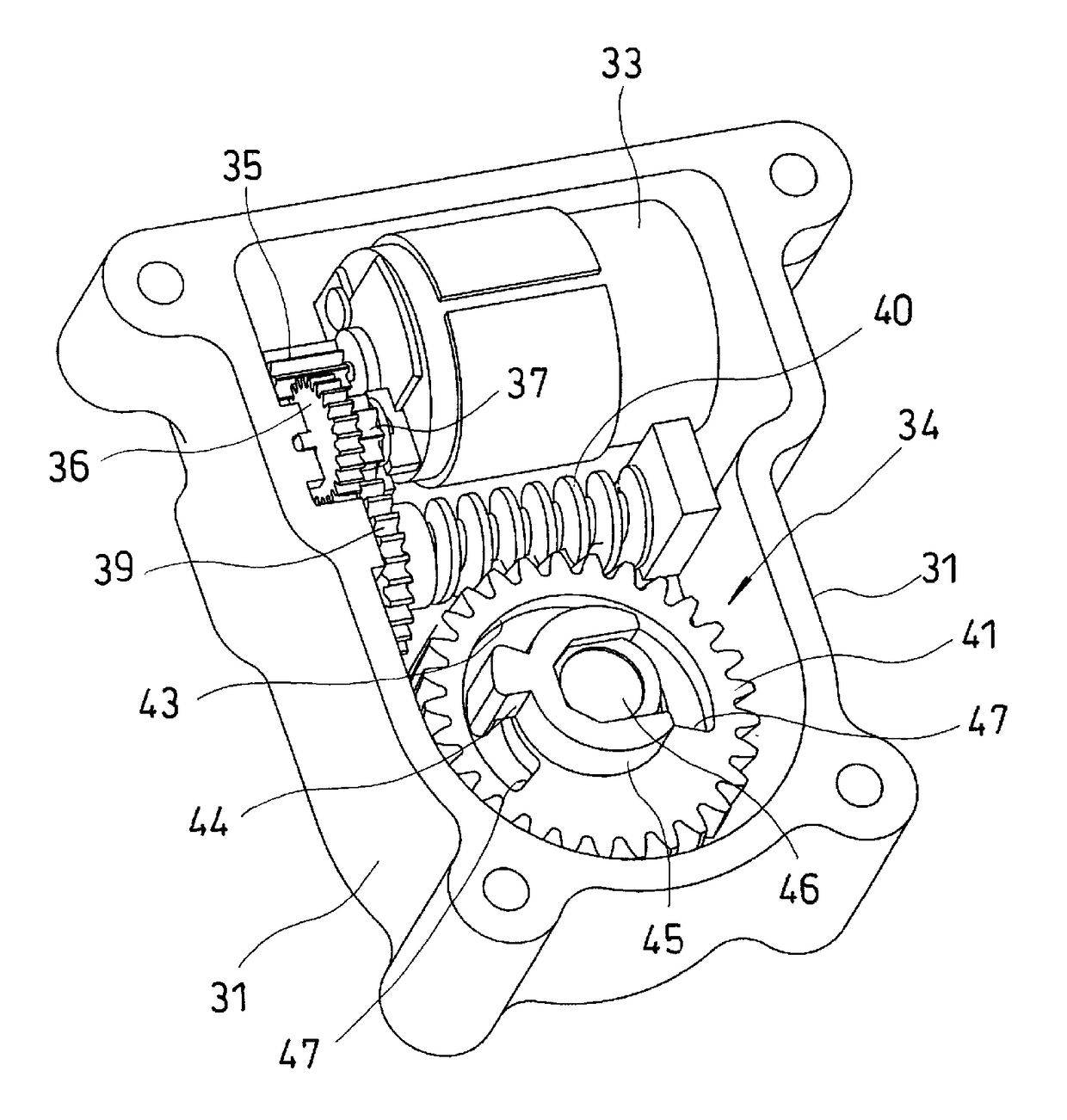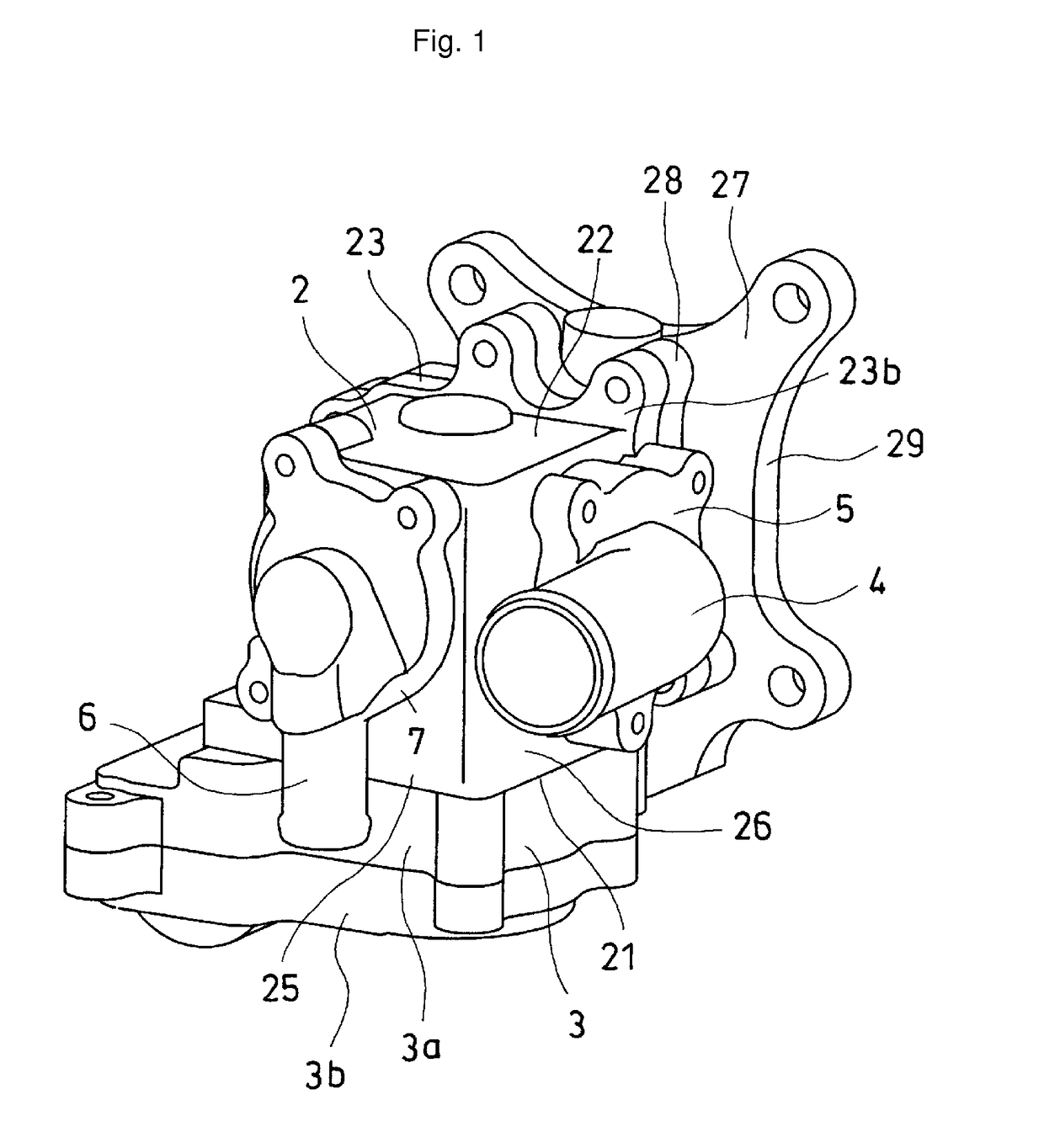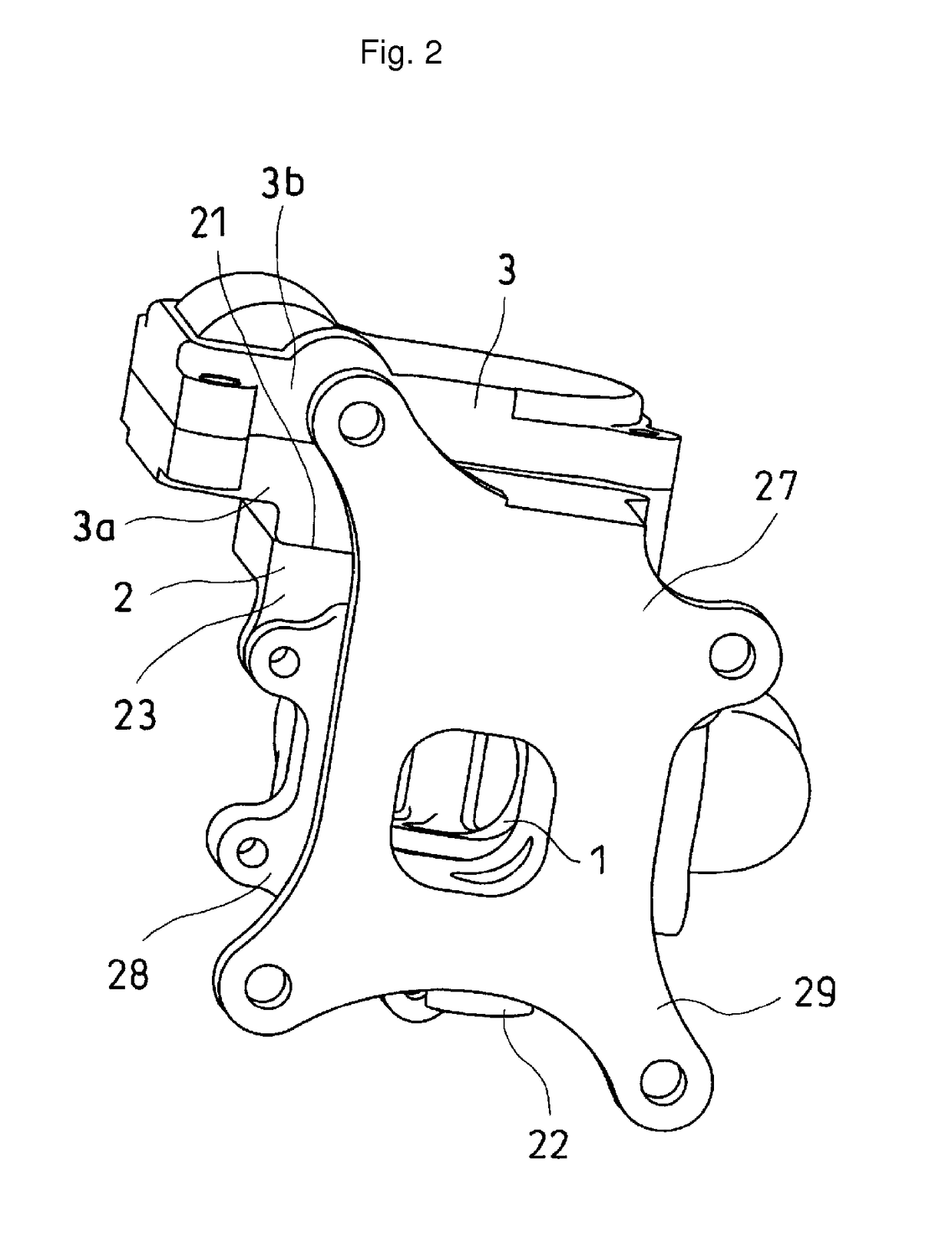Coolant-control valve
a technology of valve body and valve body, which is applied in the direction of valve operating means/release devices, machines/engines, mechanical equipment, etc., can solve the problems of affecting the reduction of size and manufacturing cost of the valve, the failure factor of the coolant-control valve, and the inability to provide the initialization learning stopper in the coolant-control valve, etc., to achieve simple and efficient structure and regulate the operating range of the valve body
- Summary
- Abstract
- Description
- Claims
- Application Information
AI Technical Summary
Benefits of technology
Problems solved by technology
Method used
Image
Examples
Embodiment Construction
[0039]Hereinafter, preferred embodiments of the present invention will be described with reference to the drawings.
[0040]For example, a rotary type valve is used to control the coolant of an engine of a vehicle, is used by being attached to an engine block of the engine, and is used to open and close a main flow passage and a sub flow passage, in an engine cooling system that has the main flow passage for circulating the coolant between an engine block and a radiator, the sub flow passage for supplying the coolant to a device requiring temperature adjustment using the coolant (for example, a heater or a throttle), and a bypass flow passage that bypasses the radiator.
[0041]As illustrated in FIGS. 1 to 3, a rotary type valve has a rotor 1 (illustrated in FIG. 3), a casing 2 that houses the rotor 1 in a freely rotatable manner, a rotary drive device (actuator) 3 that rotationally drives the rotor 1, a main connecting member 5 having a main connecting pipe 4 that is connected to a main ...
PUM
 Login to View More
Login to View More Abstract
Description
Claims
Application Information
 Login to View More
Login to View More - R&D
- Intellectual Property
- Life Sciences
- Materials
- Tech Scout
- Unparalleled Data Quality
- Higher Quality Content
- 60% Fewer Hallucinations
Browse by: Latest US Patents, China's latest patents, Technical Efficacy Thesaurus, Application Domain, Technology Topic, Popular Technical Reports.
© 2025 PatSnap. All rights reserved.Legal|Privacy policy|Modern Slavery Act Transparency Statement|Sitemap|About US| Contact US: help@patsnap.com



